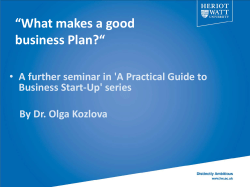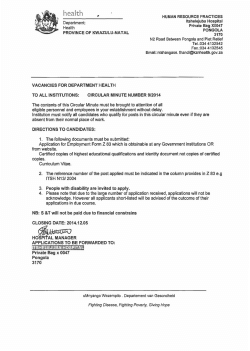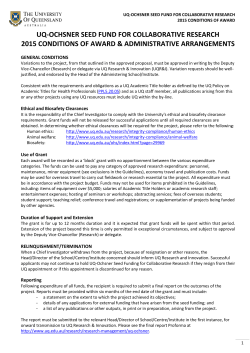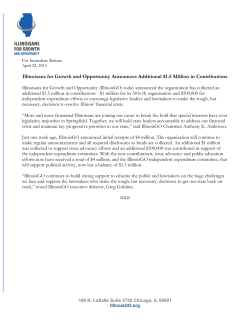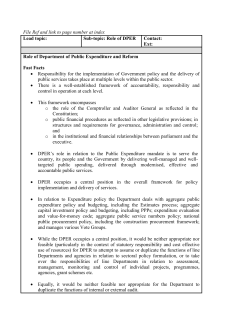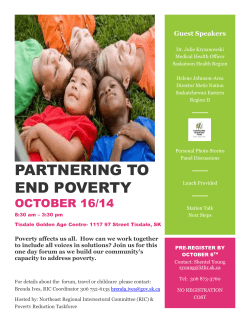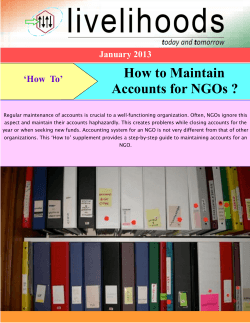
2014 EU-SILC International Conference Conference, Lisbon, 16-17 October 2014
2014 EU-SILC International Conference Conference, Lisbon, 16-17 October 2014 - Session 1 - Comparing poverty estimates using income, expenditure and material deprivation Paola Serafino and Richard Tonkin (UK Office for National Statistics [ONS]) Abstract The Europe 2020 social inclusion target will be measured according to work attachment, income and material deprivation indicators using the EU Statistics on Income and Living Conditions (EU-SILC). However, there has been increasing interest in recent years in whether expenditure and consumption provide more appropriate measures of standard of living than income. This Net-SILC2 work package therefore aims to compare people’s exposure to poverty using four different measures: income, expenditure, material deprivation and low work intensity. However, no single data source provides joint information on all these variables. Therefore, the analysis described in this paper uses the results of statistically matching expenditure from the Household Budget Survey (HBS) with income and material deprivation contained within EU Statistics on Income and Living Conditions (SILC) using 2010 data for the UK, Germany and Belgium. These matched datasets were used to analyse the overlap between income and expenditure poverty and material deprivation, as well as the relationship between income and expenditure poverty and other measures of social exclusion. Richard Tonkin and Paola Serafino are from the UK Office for National Statistics (ONS). This work has been supported by the second Network for the analysis of EU-SILC (Net-SILC2), funded by Eurostat. The European Commission and ONS bear no responsibility for the analyses and conclusions, which are solely those of the authors. Email address for correspondence: paola.serafino@ons.gsi.gov.uk. The authors would like to thank David Gordon, Tony Atkinson and Eric Marlier for their helpful comments and discussions.
© Copyright 2025
